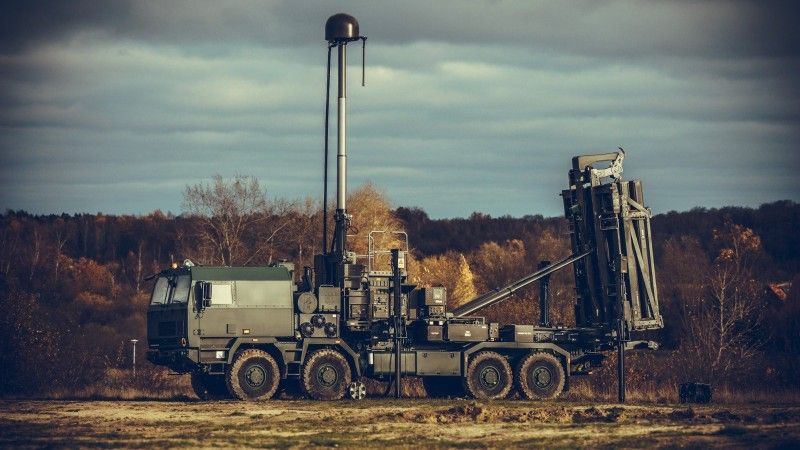Armed Forces
Polish Air Defence Units to Launch CAMM Missiles [EXCLUSIVE]

Photo. St. szer. Sławomir Kozioł/18 DZ
A missile firing event involving the Polish „Little Narew” system with CAMM effectors is planned to happen in mid-2023 - as Defence24.pl has learned.
Speaking to Defence24.pl, Major Przemysław Lipczyński, spokesman for the 18th Mechanized Division announced that training launches for the "Little Narew" system have been planned in mid-2023. It would happen at the Central Air Force Training Range in Ustka.
The missile launches have been planned a year from the moment when the "Little Narew" system contract was signed (April this year) and less than a year from the actual delivery. That would be an important element of training, not just for the 18th Air Defence Regiment, and the 18th Mechanized Division, but for the air defence component as a whole. The whole process, meanwhile, if finalized successfully, may become a major success for the Polish industry, and the Polish Armed Forces, at many different levels. The PGZ-Narew consortium is responsible for delivering the system, working hand-in-hand with MBDA UK, and delivering the effectors.
The "Little Narew" launch would be the first launch of a multi-channel SAM system capable of attacking multiple threats at once, with a range exceeding 10 kilometers.
Up until now, the Polish air defence elements have been launching either modern VSHORAD missiles (Grom, Piorun), or post-Soviet Neva, Kub, and Osa SAMs, which have been upgraded but employ an entirely different guidance systems.
In the past (when Poland was a fresh NATO member) Ustka has also been an arena for launches of the S-75M and 2K11 Krug SAMs. These, however, have been withdrawn and now are being replaced by the Patriot system, procured within the framework of the Wisła programme. Let us add, that to secure the launches, the Post-Soviet missiles had to be modified so that their range would be limited. All of the aforesaid systems are operated across a single channel (one fire unit or launcher (for Osa) is used against a single threat). They utilize semi-active or command-based guidance units, dependent on the guidance system, such as the radar.
The "Little Narew" is an entirely new system. The CAMM missiles with a range of 25 kilometers utilize an INS guidance unit that is not directly tied to the fire unit, while the targeting data is transferred over a datalink, but not in a continuous manner. The terminal guidance is done by an active RF seeker. A similar set of rules applies to AMRAAM or MICA EM missiles, available in air-to-air, or surface-to-air variants (NASAMS, Mica VL). The CAMM missile's capabilities are entirely different from the Post-Soviet systems when it comes to engaging maneuvering, low-flying threats.
The Ustka launches would be a major premiere, for the Polish range (that needs to be prepared and secured), and for the soldiers, or even the industry. One may only hope that the commissioning of the "Little Narew" system in the 18th Mechanized Division and 16th Mechanized Division (15th Air Defence Regiment) would put a successful end and pave the way for the implementation of modern SHORAD assets (Pilica+, Narew).
The "Little Narew" fire unit includes 3 CAMM launchers, Soła radar, loading/transport vehicles, and a Zenit command system. Based on the experiences gathered when using that system, the Pilica is to be expanded to the Pilica+ version, including a modified C2 system, CAMM launchers, Bystra radar, and effectors destined for countering UAVs. Systems as such would be used to protect the IBCS/Patriot combo.
Meanwhile, Narew, in its final form, would be integrated with IBCS, and equipped with extended-range effectors, and Sajna radars. The training involving those systems would also be an organizational challenge when it comes to launches if a full envelope is expected to be used in engagements against maneuvering or supersonic threats. Let us add that Patriot PAC-3 MSE launches are happening just in the USA. And these are rare, given the associated costs. The legacy PAC-2/GEM-T missiles can be launched at the European ranges, in Crete, or, for some time now, in Romania.
